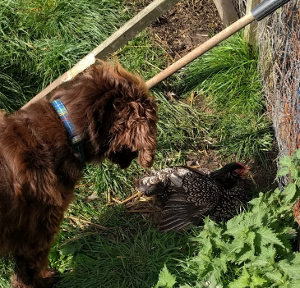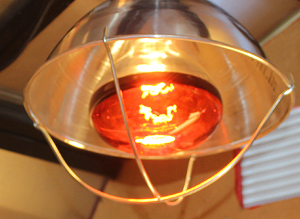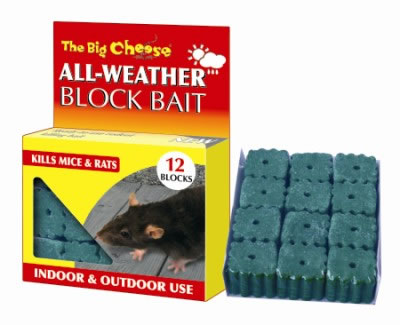Chicken keeping and hazards in the garden or backyard

Here is a list of common hazards for poultry and backyard chickens. Things to watch out for:
Table of Contents
- How to mitigate hazards in the backyard.
- Predators:
- Pets:
- Plants, Mushrooms and Toadstools:
- Elastic bands:
- People:
- String and twine, rope or wire:
- Light weight feed bowls or drinkers:
- Fences:
- Spilled feed:
- Glass, metal, and other sharp objects:
- Cords, wires, and heat lamps and electricity/water:
- Fertilisers, pesticides and poisons:
- Disease from wild birds:
- Smothering:
- Other pets:
- Traps:
- Styrofoam (expanded polystyrene foam)and plastic:
- Buckets and other open containers:
- Spilled water, moisture or a damp coop:
How to mitigate hazards in the backyard.
Especially if you have only a few birds it can be devastating to lose one or more to preventable hazards in the garden or yard.
Even if you have a large flock it is still unfortunate to lose a chicken or duck as it always seems to be the case that it I is the best bird that gets caught.
A backyard can pose various threats to chickens. Here's how to mitigate them:
- Chemical-Free Yard: Avoid using harmful chemicals like pesticides and fertilisers in your yard.
- Secure Storage: Keep all chemicals, including cleaning products, out of reach of chickens.
- Plant Safe Plants: Research plants that are safe for chickens and avoid those that are toxic.
- Sharp Objects: Remove any sharp objects like broken glass, nails, or wire from the yard.
- Secure Fencing: Check for gaps or weak spots in your fencing to prevent escapes and injuries.
- Water Sources: Ensure water sources are clean and free of debris or chemicals.
- Cleanliness: Maintain a clean and sanitised coop and run to prevent disease spread.
- Bio-security: Practice good bio-security measures to protect your flock from diseases.
- Vaccination: Consult with a veterinarian about appropriate vaccinations for your area.
- Supervision: Monitor your chickens regularly for signs of illness or injury.
- First Aid: Learn basic chicken first aid to address minor injuries.
- Shelter: Provide adequate shelter from extreme weather conditions.
- Secure Coop: Ensure your coop is predator-proof with sturdy construction, wire mesh, and locks.
- Nighttime Confinement: Keep chickens indoors at night to protect them from nocturnal predators.
- Predator Deterrents: Consider using predator deterrents like motion-activated lights, sound deterrents, or fencing.
There are many hazards that can seriously injure, or be potentially deadly to your birds, such as predators, disease, etc. but it is the small things that we tend to over look.
Here's a quick checklist, it may seem a long list but not everyone will face all the issues. I just want to help eliminate a few of the common hazards you may have in your coop or run.
Predators:
Foxes, mink, badgers and birds of prey are just some of the things that will eat chickens and other poultry.

Just which predators you will have to deal with depends on where you live in the world.
Pets:
You loving family dog will easily kill a chickens and while it may behave itself around you, leaving them alone together might be a problem.
Below: My dog watching the chickens.

Willow, my spaniel, is brilliant with my poultry and would never harm it at all, although he does like to follow them around and stare.
Plants, Mushrooms and Toadstools:
Plants like rhubarb. Ricinus and other common garden plants can be poisonous. Long fibrous grass can plug a crop and begin to ferment. Mushrooms and toadstools can appear and get eaten before you notice. There are quite a few deadly plants around, here in the UK water drop-wort grows in damp areas and can be fatal in minutes. For a full list of what chickens are not allowed look here.

Elastic bands:
I’m going to put this 1 on it’s own as although rare they tend to be deadly as they hide under the feathers or get tangled in the mouth and cut silently through the skin and you only find out too late.
People:
You might be surprised to find this one here but cruelty is on the rise. Seems horrible but I once had a chicken nesting in a hedge beaten to death. Theft is also a problem as chickens get more valuable.
String and twine, rope or wire:
Most bags of feed have a pull string for easy opening. This thin cotton string seems to be drawn toward birds legs and toes like a magnet while they are scratching about or they try to eat it . I have seen many birds get this string wrapped around their legs and feet and several that have been strangled in a panic when it tightens round their neck.
Once it is wrapped up tightly it can be very difficult to remove, especially if it gets in the spurs of a cockerel and it can cause serious problems, from discomfort to loss of circulation and broken bones.
If the string gets caught the bird could be trapped outdoors overnight, making easy pickings for any predator or the cold. If you find a bird with string or twine wrapped around their legs or toes, remove it as soon as possible, and make sure they do not have access to anymore of it.

The string that stitches feed sacks shut and the binder twine on hay bales can tie up chickens really easily. Do not position the sacks so as they can fall on your birds if they topple over.
Light weight feed bowls or drinkers:
Containers, or plastic containers that can overturn and trap birds. Feed bowls and food hoppers is one danger we tend to over look but unsecured feeders full of grain or layers pellets are heavy.
I have had several young birds in particular get trapped under light weight feed bowls when they hopped on the edge to get a better drink, or tried to reach a bit of feed on the bottom and it overturned on top of them.
Put pebbles, rocks or a clean brick on the bottom of the bowls or containers to weigh them down and prevent them from flipping over on your birds or use heavyweight galvanised drinkers and feeders that are stable and secure.
Fences:
Old or poorly maintained fences can trap a chickens neck as they have a habit of poking their heads through any hole and can do themselves quite a lot of damage.
Spilled feed:
If possible, avoid spilled feed. This is important for many reasons, one, the feed will eventually mould and your birds may than eat it, which can cause them to become ill. Mould spores can grow in the crop and cause all sorts of problems.
Further, it can attract rodents and other pests, and it is also wasteful and expensive. Make sure your feeders prohibit spills and waste. One way to do this is to make sure your birds can't get into the feeders and scratch around, like my birds are doing in the picture below.
Glass, metal, and other sharp objects:
Chickens tend to peck at shiny or reflective things, and sharp objects can cause your birds to get small cuts and abrasions that can lead to infections such as bumblefoot or can cause death from blood loss or infection.
Make sure to remove any sharp objects in the area where your birds range and do not keep birds on a site that was previously a building site or used as a dumping ground.
Cords, wires, and heat lamps and electricity/water:
Electricity and water do not mix .Many coop fires are started by heat lamps and electrical related problems. First off don't use heat lamps in your coop unless absolutely necessary . Make sure your heat lamp is fully secured, and all your extension cords are in top condition, and free of cuts, abrasions or pinch marks.
This also goes for any electrical wires you may have in or near your coop. Do not use damaged cords or wires, especially near water.! If you are using a heat lamp, make sure it is securely fastened in multiple secure ways. Young birds may try to perch and will pull stuff down or can burn their feet.

Heat lamps or gas brooders can light up the tinder dry bedding in a coop with disastrous consequences
Fertilisers, pesticides and poisons:
I personally, only use diatomaceous earth around my hens as it doesn’t matter if the get in on their feathers or skin or consume it. Do not use chemicals around your coop and run. If your birds are free-ranging on your lawn, avoid using fertilisers, herbicides, pesticides, weed killers, etc.
What poisons kill chickens?
This is by no means an exhaustive list, lots of thing will kill a chicken.
- Caffeine - As little as 10mg can be fatal to birds.
- Alcohol - Has all the usual effects, just much more quickly. Whisky soaked corn used to be a dirty trick at poultry shows to nobble an opponents birds.
- Metaldehyde - Used in slug pellets.
- All rat poisons.
- Persin in Avocado skin.
- Quite a few plants are poisonous to chickens.
- Paracetamol and aspirin along with many other drugs.
- Human strength iron tablets and supplements.
- Chocolate. Theobromide is deadly.
These products very often contain harsh, nasty chemicals than can cause blisters or burns. Not only may these cause illness to your birds, but you don't want to be eating eggs from hens that could have ingested these items. Also do not use poisons near or around your coop. Most rat poisons are deadly to chickens and other poultry.
Slug pellets are to be avoided.
Even if the poison is well out of reach of your birds the rodents that consumed the poison won't be that far away or it could drag the poison block or grain to where the chickens can get to it. Your birds may see them as a tasty treat and will still consume the poison. The best policy is to avoid all such chemicals as much as possible.

Rat poison will kill hens just as efficiently as it will deal with rats.
Disease from wild birds:
Diseases and parasites can be caught easily from wild birds. Don’t leave feed lying around to attract crows or wild ducks to feeders. There is little else to do to keep yourself safe from this one. Buy vaccinated birds.
Smothering:
This problem is particular to young birds so if you only buy full grown birds and do not raise your own chickens you need not worry about young birds that panic and rush into corners or smother some of the when they crush together to sleep in a huddle.
Wait till birds begin to perch and gradually get them used to the outdoors so they don’t panic.
Other pets:
Cats, dogs or whatever you share your house with can be dangerous to fowl. Some things see chickens as quite a delicacy.
I have never seen a cat take a full grown bantam but they can and will catch and kill chicks. Horses can and will stand on chickens and sheep can crush birds as they compete for food.
Traps:
A rat trap will kill a chicken just as easily as a rat. Mink or cage traps can keep poultry confined till the die of heat exhaustion or lack of water or food.
Styrofoam (expanded polystyrene foam)and plastic:
Chickens seem to irresistibly attracted to Styrofoam and while it is unlikely to kill them it does harbour bacteria, replace food, contain chemicals which can pass to the egg and is indigestible.
Styrofoam is light and can be blown in on the wind and your birds will often see bits of plastic and other garbage as tasty treats. They especially love Styrofoam’s crunchy texture and will pick the bits apart readily.
Styrofoam, or expanded polystyrene foam is very bad for chickens:
- It replaces food, meaning the chickens get less nutrition.
- It is indigestible and can lead to impaction of the gut.
- Harmful chemicals are used in the manufacture of foam.
- Chickens find it addictive and will continue to eat it.
Though your birds enjoy eating these they are definitely not a healthy and may cause harm. Keep such things out of your birds reach.
A litter free run is important. Include discarded take away food containers in this as it can be quite a problem depending on where you live and where you keep your birds.

Chickens find polystyrene irresistible and will peck at it for ages. Whilst it isn't going to kill them straight away it replaces food and is indigestible and the chemicals used in it's manufacture may remain behind.
Buckets and other open containers:
Anything that can collect an appreciable depth of water or with steep slippery sides can trap and drown a bird really easily. Once the feathers are wet the bird will succumb to the cold and damp very quickly and drown. Cover all open water butts and keep fresh water in drinkers.
Stagnant water can attract pests such as snakes and rodents as well as carry water-borne diseases. It can also be a drowning hazard for young poultry, and even adult fowl depending on how deep it is.
Spilled water, moisture or a damp coop:
Water and moisture are things you want to avoid in your coop. Most frostbite and respiratory problems are caused by too much moisture, water, wet bedding, or not enough ventilation.
Ducks, geese, and other water fowl especially are very messy around their waterer. If possible keep your waterers out in the run to avoid wet bedding, and moisture. Only water your birds inside when weather conditions keep them from going out.
